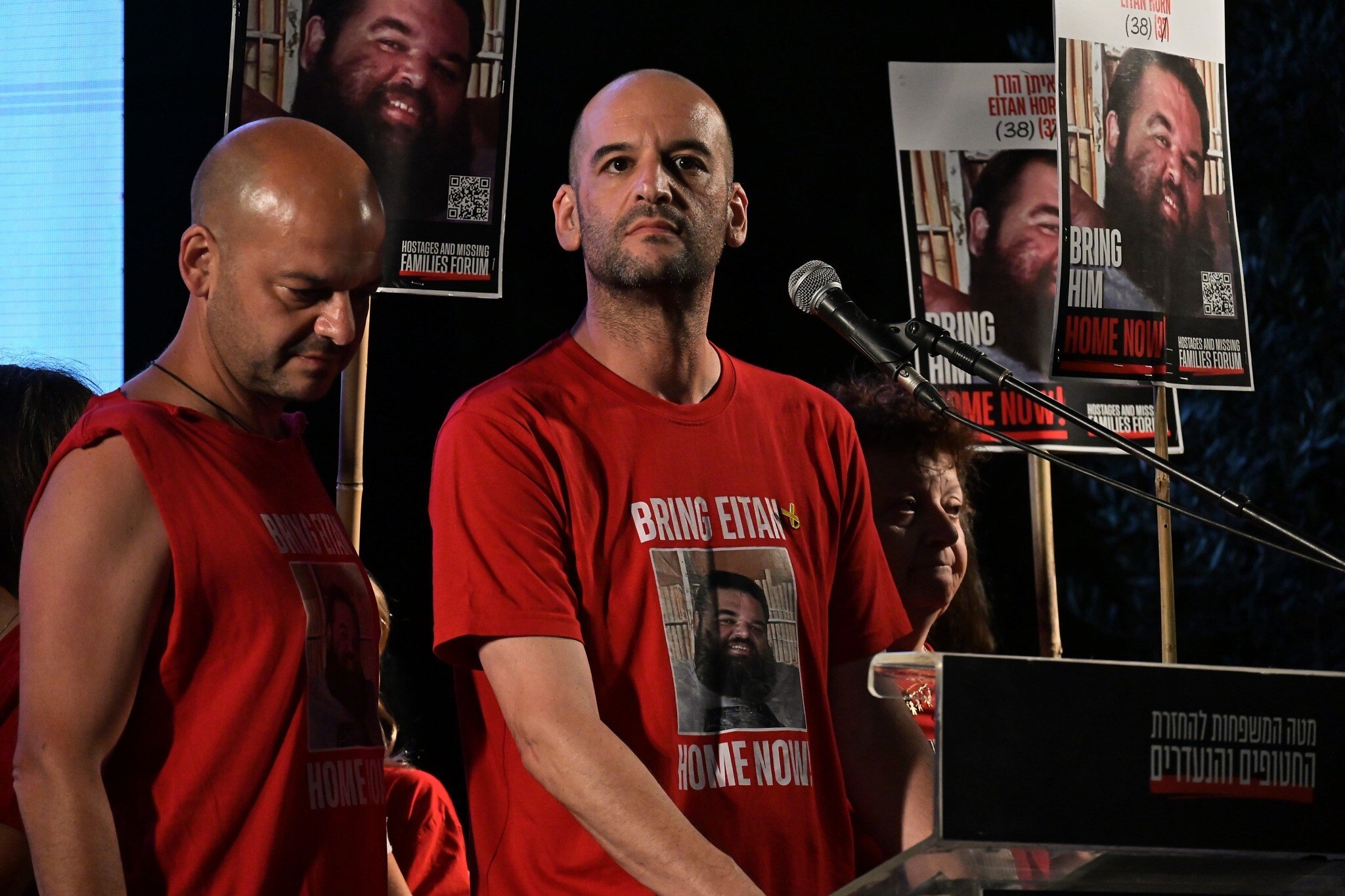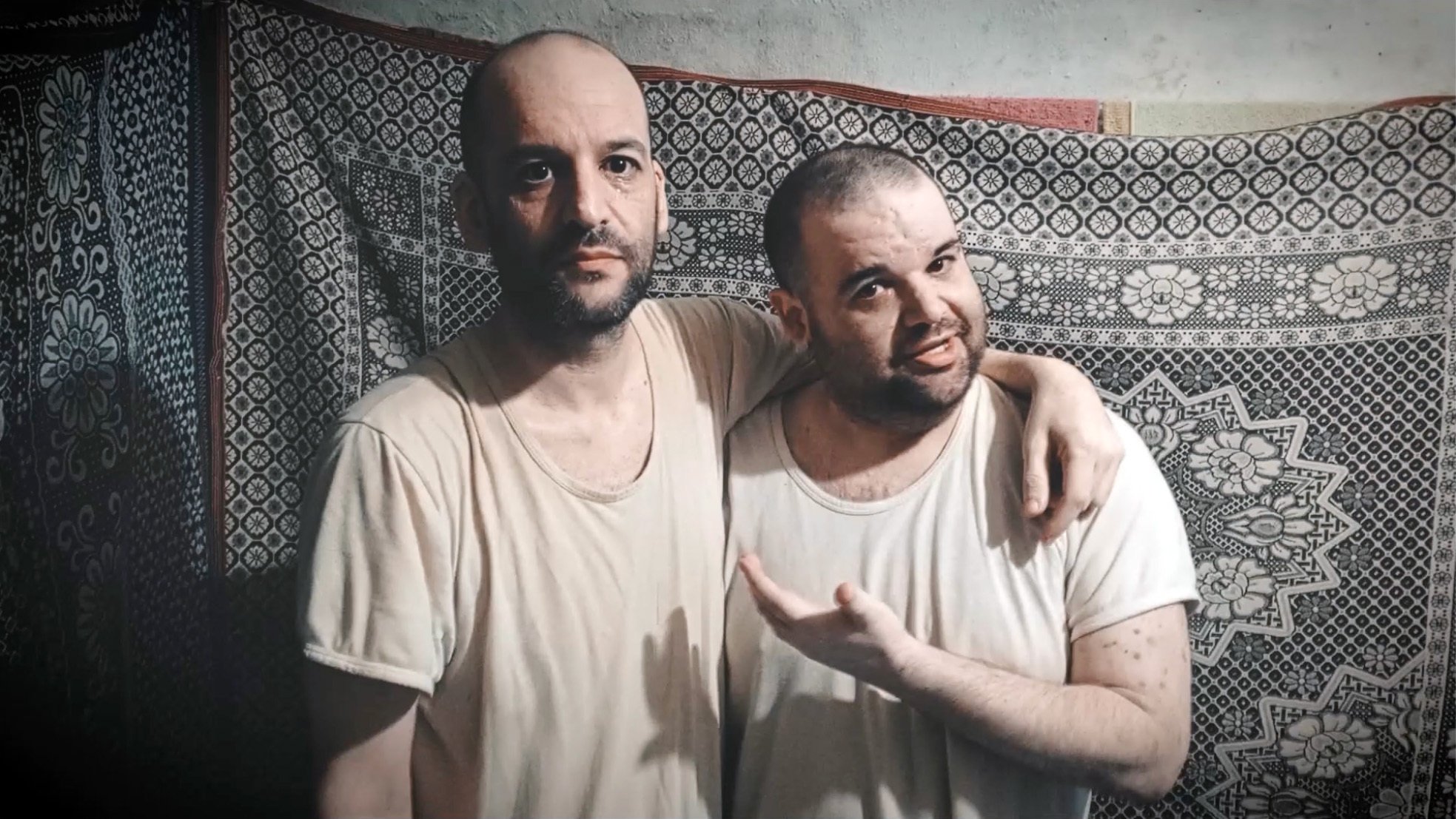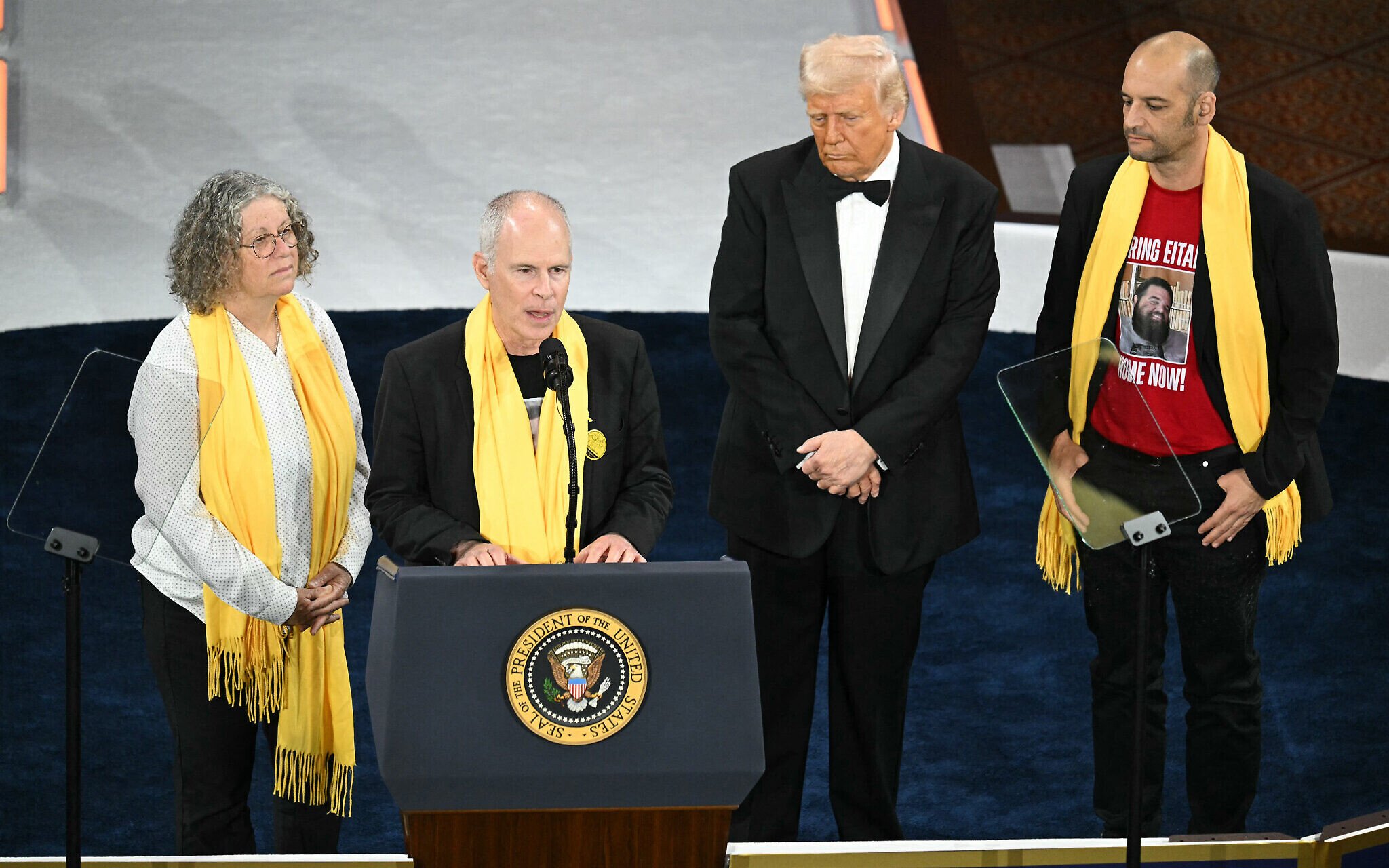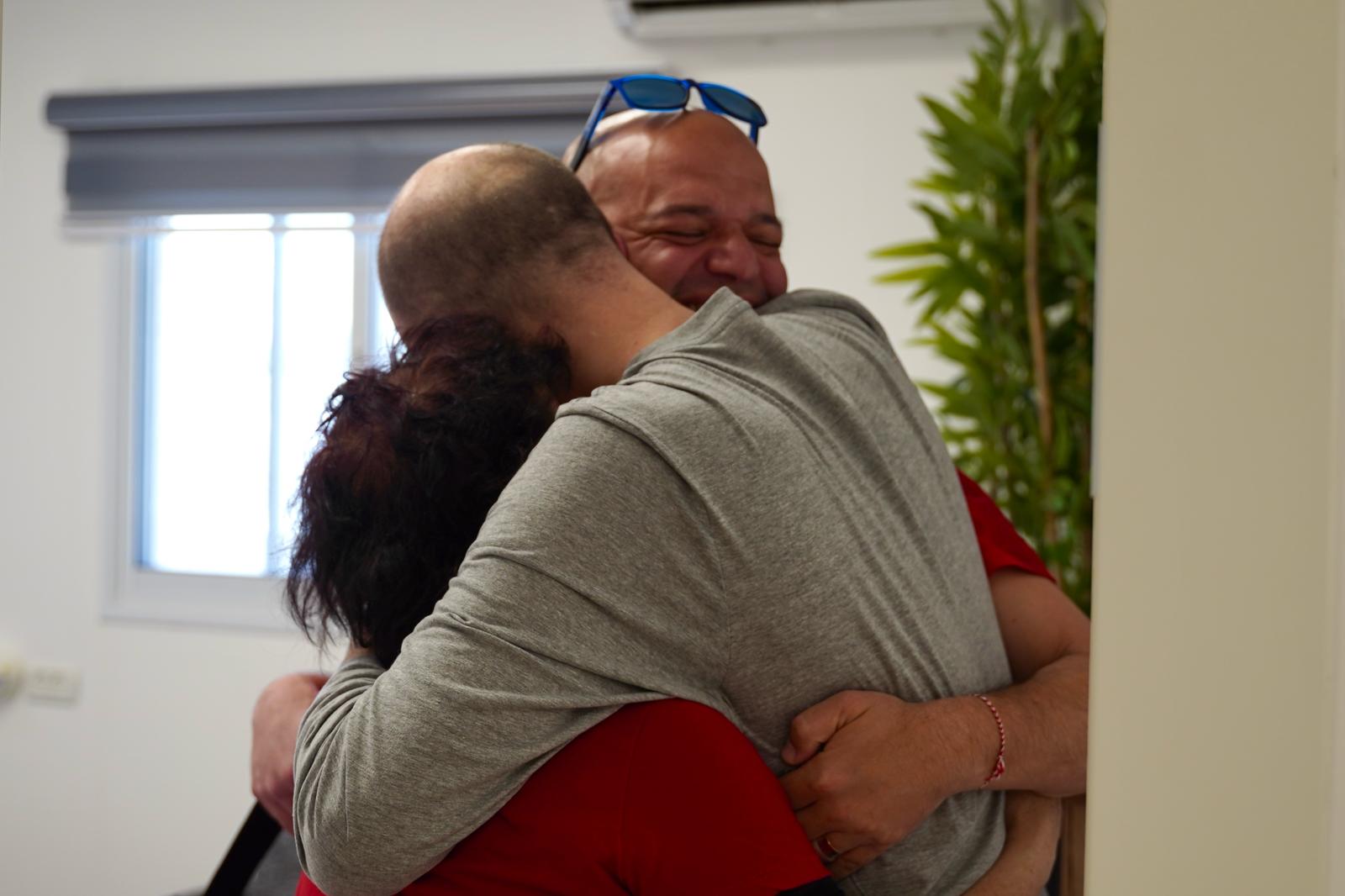



It’s been nearly four months since former hostage Iair Horn was released after 498 days in captivity in Gaza and he’s still not completely present in his daily life, said his sister-in-law, Dalia Cusnir.
Cusnir, married to Amos Horn, the middle brother of the three Horn brothers, has been one of the main spokespeople for the family since her two brothers-in-law, Iair and Eitan, were taken hostage on October 7, 2023, from Kibbutz Nir Oz.
Iair was released in February in a hostage-ceasefire deal. His brother Eitan remains in Hamas captivity in Gaza.
On Wednesday, she and her mother-in-law, Ruti Strum, were the two family members who met with Argentine President Javier Milei during his second official visit to Israel, along with other Israeli-Argentinian hostage family members.
Released hostage Yarden Bibas was present in that meeting, but Iair Horn was not.
“He’s not really with us, and he says it all the time,” said Cusnir. “He says, ‘I’m not here, my heart and my brain are not here,’ and his eyes fade from the conversation. He feels guilty that he’s back and Eitan isn’t, and nor are the others with whom he was held captive.”
Iair Horn, 46, an Israeli immigrant from Argentina, moved to Kibbutz Nir Oz in 2014, where he worked in education and then on the kibbutz facilities, including running the local pub.
The entire Horn family had immigrated to Israel from Argentina over the last 30 years. Iair and Amos cam first, each drafting into the Israel Defense Forces at age 18. They were followed by ]younger brother, Eitan, a youth educator, and their parents, long divorced.
Eitan Horn, who was living in Kfar Saba, had come to Nir Oz to visit Iair during the October 2023 holiday weekend when the Hamas terrorists invaded the kibbutz and took the two brothers captive, along with 74 others from the community.
On the morning of October 7, 2023, over 500 Palestinian terrorists swarmed into the unsuspecting Gaza border community. The army, plunged into disarray by the shock attack on dozens of towns and military posts simultaneously, entirely failed to come to the rescue, as the terrorists moved from home to home, brutalizing, massacring, and kidnapping dozens of civilians.
The first soldiers to arrive at Nir Oz on October 7 did so some 40 minutes after the last terrorist left.
In all, 47 people, including 41 residents and six partygoers fleeing a nearby rave, were killed in the kibbutz during the onslaught. Another 76 were abducted by the terrorists — 67 alive and nine who were killed that day, either in Nir Oz, en route to Gaza, or in the Strip itself.
Of the 67 living hostages, 13 were killed in the Gaza Strip during the war. Currently, four hostages are presumed alive and the bodies of seven captives remain held in Gaza, after 49 were released and the bodies of 16 were returned to Israel.
Eitan Horn, David Cunio, Ariel Cunio and Matan Zangauker are the only remaining, presumably living hostages taken from Kibbutz Nir Oz.
“Even if Eitan were to return tomorrow, Iair would still feel like he’s there with them all,” said Cusnir. “He says, ‘I was there, I know,’ he feels that very keenly.”
When Horn was first released, he desperately wanted to meet with elected Israeli officials, said Cusnir, thinking perhaps they didn’t completely understand the realities of Hamas captivity. He thought if they could hear about captivity from him, they would work more intensively on hostage negotiations.
“It was a kind of naivete,” said Cusnir.
When they didn’t meet with him, Cusnir and Horn headed on several missions to the US, hoping the Trump administration would push along the negotiations.
On one of those trips, with other released hostages including Naama Levy, Omer Shem Tov, Keith Siegel and Aviva Siegel, Eli Sharabi and Doron Steinbrecher, Horn was overwhelmed to find out that these young women and young men had remained so long in Hamas captivity.
“We think they know the other hostages, but they don’t at first,” said Cusnir.
“When Iair saw Omer and Naama, he said, ‘Who are they? How old are they?'” said Cusnir. “He couldn’t believe that young people like Naama, who was around 19, and Omer in his early twenties, were held hostage for so long.”
“He said, ‘I’m 46, and Naama is a young woman, how come she wasn’t released in the first deal? How could Israel let this happen?'” said Cusnir.
Iair Horn is a person who loves to help others, said his sister-in-law. When he was held underground, said Cusnir, he was the person who worried about and took care of the others.
“So he needs to see that the others are released,” she said.
The Horns believe that only a diplomatic solution reached through negotiations with Hamas will bring the remaining hostages home — not the ongoing war in Gaza.
“We understand there’s one way to bring them back and if the army tries to rescue them, they’ll be killed,” said Cusnir. “We’re part of a big majority in Israel that doesn’t want one soldier to even break a hand trying to save our family.”
“We don’t want more soldiers killed, we don’t want more Gazans killed,” she said. “We don’t want to be in this place. Let’s reach a diplomatic solution.”
Cusnir’s husband, Amos Horn, was sure that his brothers had both been killed during the Hamas terrorist attack of October 7, and waited for the knock on the door informing him that his siblings were dead.
They soon found out that the two brothers had been taken hostage. When 105 hostages were released in the pause in fighting in late November 2023, several brought back signs of life of both of the Horn brothers, who were being held with some other Nir Oz members.
Iair Horn had become a member of Kibbutz Nir Oz in 2014, moving into his new home on the first day of Operation Protective Edge, the 2014 Gaza war. He was driven south that day by his brother Amos, passing tanks on the highway as they headed toward Gaza.
“He got to the kibbutz and they said, ‘Listen, it’s not a good day to move in,’ but he said, ‘I’m here, I’ll cook.’ That’s who he is,” said Cusnir.
Cusnir continues to represent her husband’s family, making more than a dozen trips to the US in the last 20 months, acting as the family’s spokesperson. She’s been on staff at the Jewish Agency for the last 15 years, where she is the director of Immersive Experiences.
“This is what I do,” she said. “I feel that it’s a necessity, and I would do this even if they weren’t my brothers-in-law. This is the biggest battle in Israel, the battle for our security, for our kids’ security.”
“This is a battle for all Israeli citizens,” she continued. “The strongest thing we have is our people and our values; we still have that here. My message is not just about Eitan, it’s about the future of this country.”





